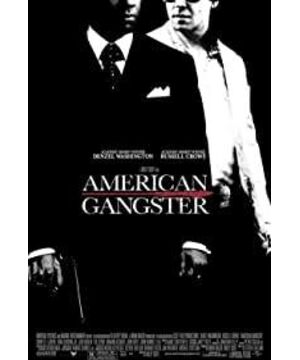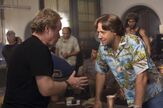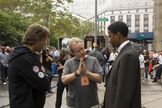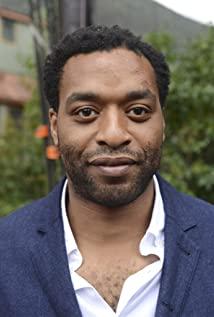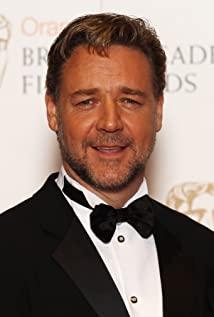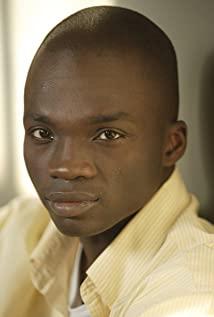Up to this point, they are all similar to the methods of the Italian Mafia, but as his future nemesis Detective Rick said: "He was very similar to the Mafia in the early stage, but changed in the later stage." Indeed, this black American educated his brother that to do "business" requires "diligence, honesty, and integrity". He himself was in a suit in public, entered the circle of celebrities, distributed bread to the poor, and married a beauty queen. The most interesting thing is that he is also very "brand-conscious". He maintains his reputation as a drug of "blue magic" in the circle, and can't bear other dealers pretending to be his "brand" with inferior products and infringing on his "Rights", even if he is nearly assassinated by a competitor, he is determined not to flee. He firmly believes that this is his home, his career and family are here, "This is American!"
All this is like a representative of the American spirit, even He is a black civil rights fighter like Martin Luther King. It's a pity that the way he gets his rights is through drugs.
The second half of the film is inevitably clichéd. The righteous side will always win. I don’t want to make moral criticism. As reflected in the confrontation between Frank and Rich after being caught, even though Frank was selling drugs, it caused thousands of He was ruined, but even if he was caught alone, there were still some people taking drugs and some people selling drugs, and the degeneration of human nature would never change.
The righteous side in the film is the scruffy policeman Richie, who appears in the image of an anti-hero. The divinity in him is as difficult to understand as the viciousness of human beings in the eyes of ordinary people. He is not motivated by money, and voluntarily handed in a value of up to one million U.S. dollars. Unmarked black money; not afraid of power, not only through the limited police force to arrest the huge underworld, but also not under the pressure of the unexpected world, the accomplices of the drug scourge,
three-quarters of the colleagues in the anti-drug team, were also taken to prison.
The reason for Rich’s doing this is surprisingly simple—"Police are the ones who catch bad guys" (something like "I'm sorry, I am the police" in "Infernal Affairs"). The actor Russell Crowe, who played Rich, finally looks like The way a scholar left with investigation materials reminded me of Nash, the idealist who pursued the truth in "Beautiful Mind".
Perhaps their cooperation in the end shows that Frank and Rich have the same belief at all. What kind of belief is it? Probably "THIS IS AMERICAN"!
View more about American Gangster reviews


